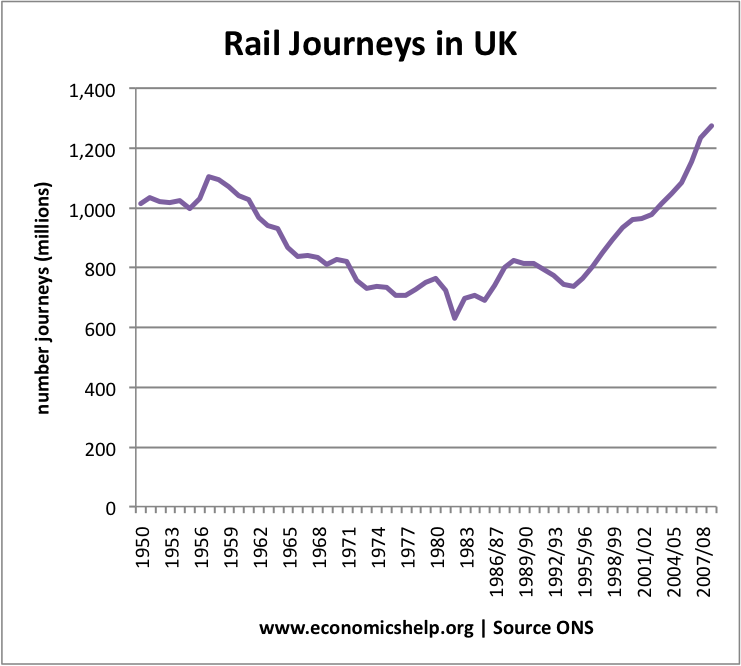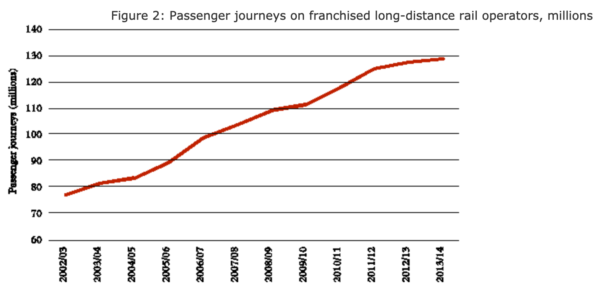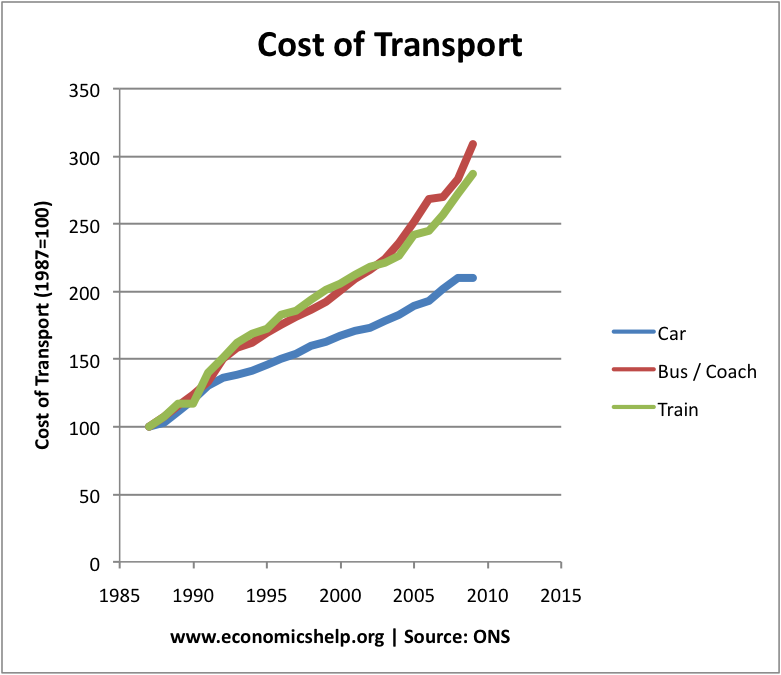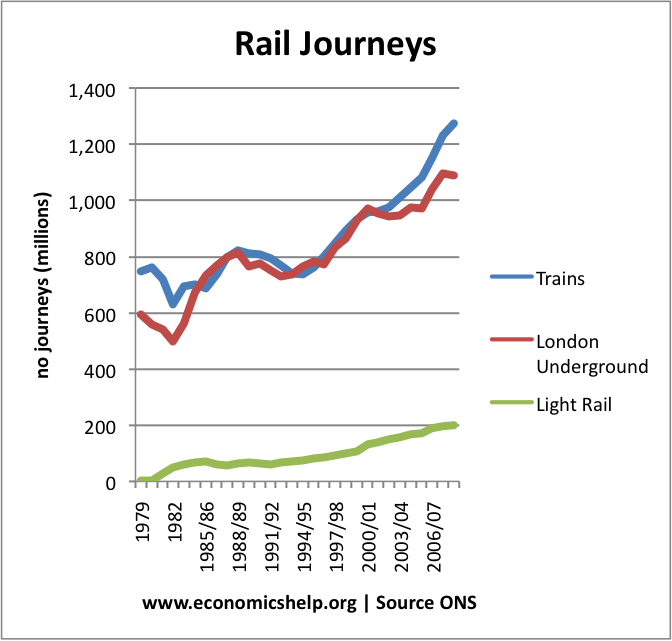Since the 1980s, UK train travel has increased sharply. Despite above-inflation price increases, demand for travel by train continues to grow. This is due to several factors including – economic growth, congestion on roads, higher rents in city centres, causing more demand for commuting.
Three interesting graphs from Social Trends vol 40.
Source: Office of Rail Regulation Data Portal, Passenger journeys by sector: Table 12.6 [accessed March 2015]
Cost of Rail Travel
Interesting to note that the cost of train and buses has increased much faster than the overall cost of using cars (this overall cost includes MOT, Purchase, tax, petrol, running costs e.t.c.). The figures go until 2009, so don’t include a recent surge in the price of petrol. But, it shows that the growth in rail travel has occurred despite rising prices.
Why Has Demand for Train Travel Increased Despite Higher Prices?
- Time is Money. On many journeys, increased road congestion has led to longer journey times in the car. On the other hand, rail journeys have been improved by electrification of some lines and improved signalling. Therefore, the shorter journey time has made it relatively more attractive.
- Parking Restrictions in City Centres. Parking restrictions in many cities make trains more effective as you don’t have to worry about parking. It is perhaps no coincidence 70% of train journey begin or end in London. The city with the worst congestion and best rail links.
- Income Elastic Demand. Rising incomes have led to a bigger % rise in demand for trains. From the train travel statistics, you can spot the two periods of recession in the early 1980s and early 1990s. (though the current recession didn’t cause a fall in demand for rail travel as rising oil prices, encouraged more people to go by train)
- Improve Service Reliability. A combination of privatisation and better technology has led to more reliable trains and better quality. (At least according to Railtrack)
- New Technology Age. In the age of the laptop, a train can be effectively a mobile office. If you commute by train, you make more efficient use of times.
- Increased rents in city centres. Rents in city centres have risen due to a shortage of accommodation. This has forced people, especially young workers, to live further away from their place of work. Therefore, this is an increased demand for people to commute further into work and they use train to get to work.
- Ecological issues. Some see train travel as more ecologically sound than driving or flying. There is a lower carbon footprint from train travel compared to airplanes and cars.
Rail, Light Rail and London Underground.
If you look at statistics for London Underground and light rail (e.g. Manchester) the statistics are more impressive.
Related
Source: ONS Social trends





2 thoughts on “Question: Why Has Demand for Train Travel Increased Despite Higher Prices?”
Comments are closed.